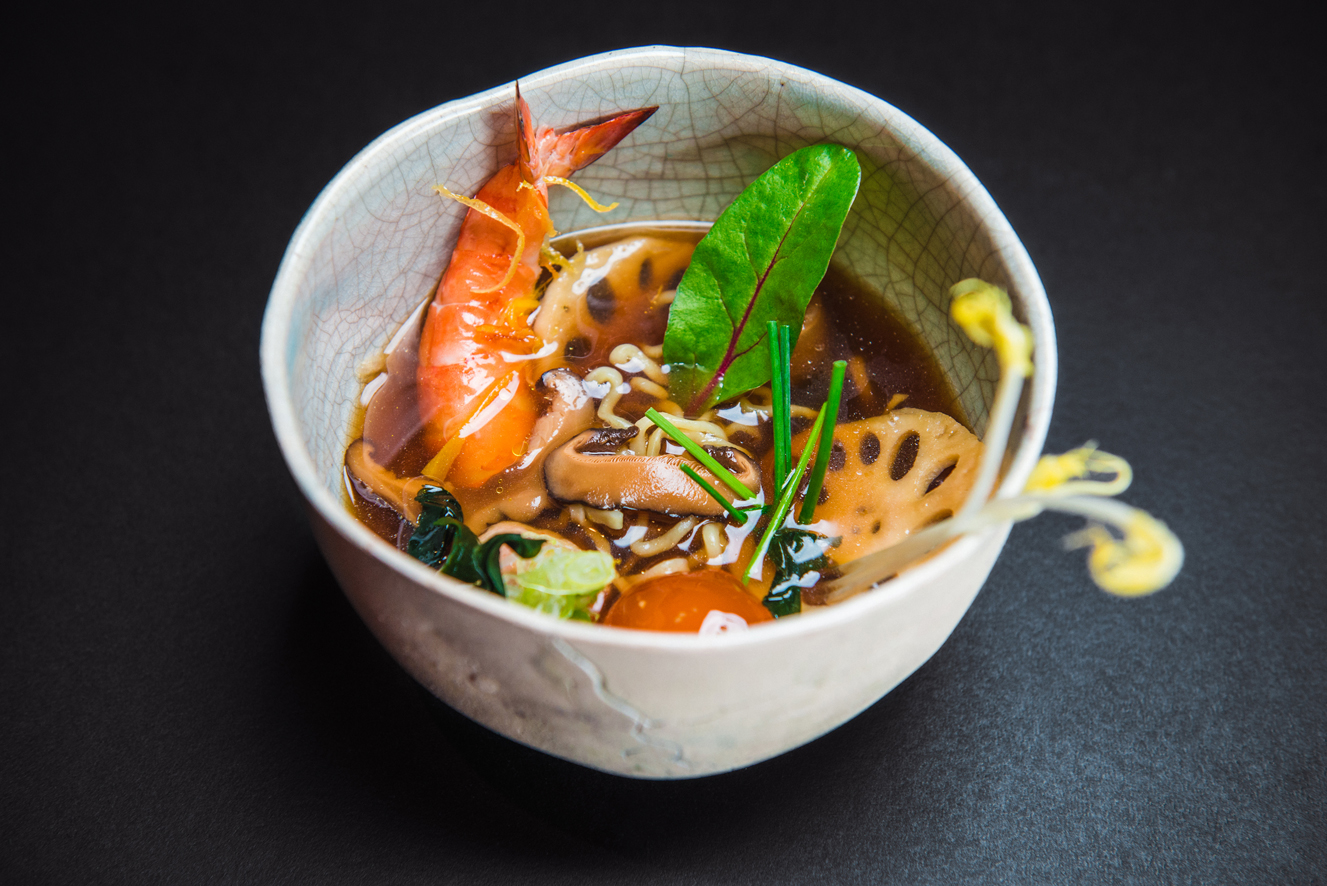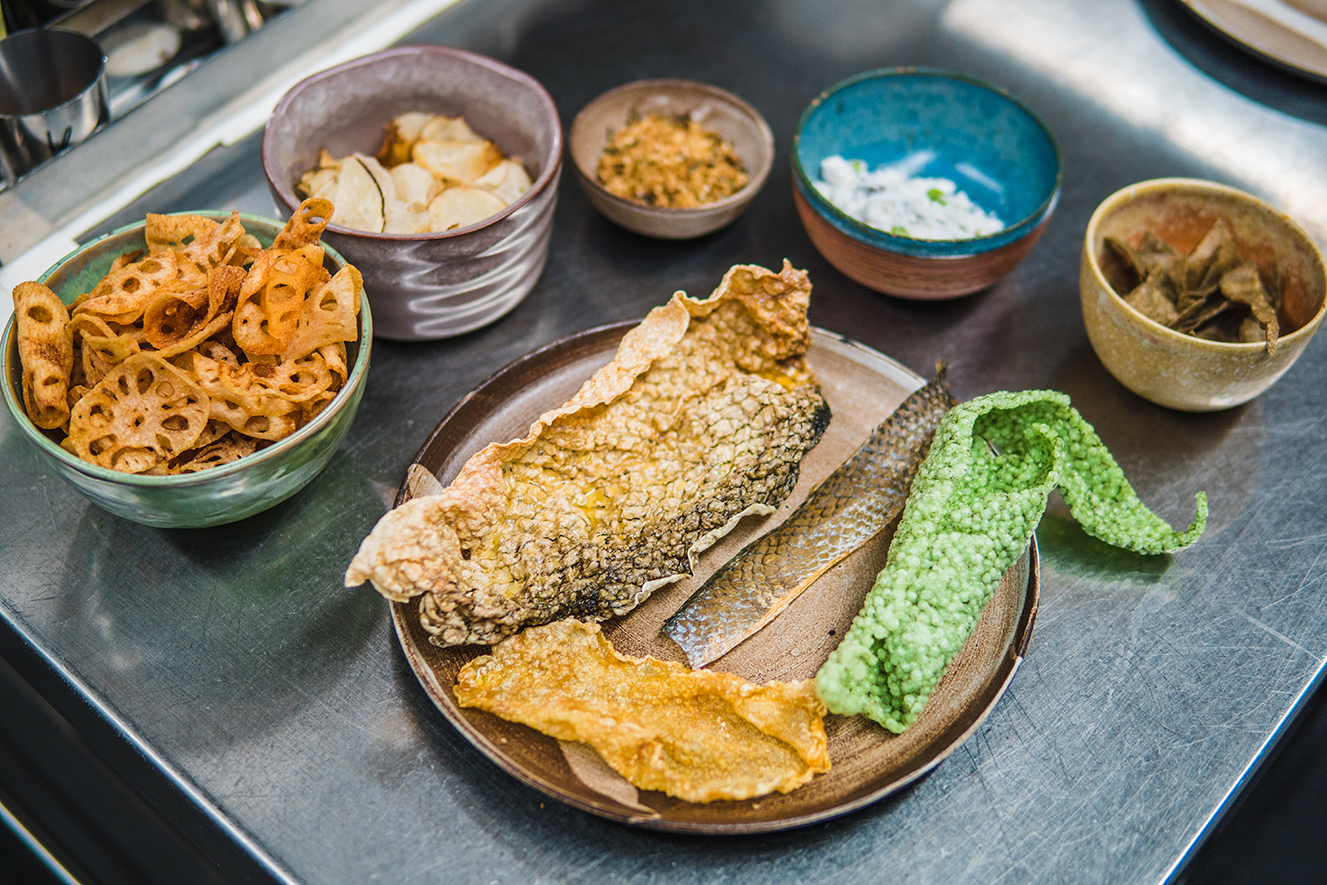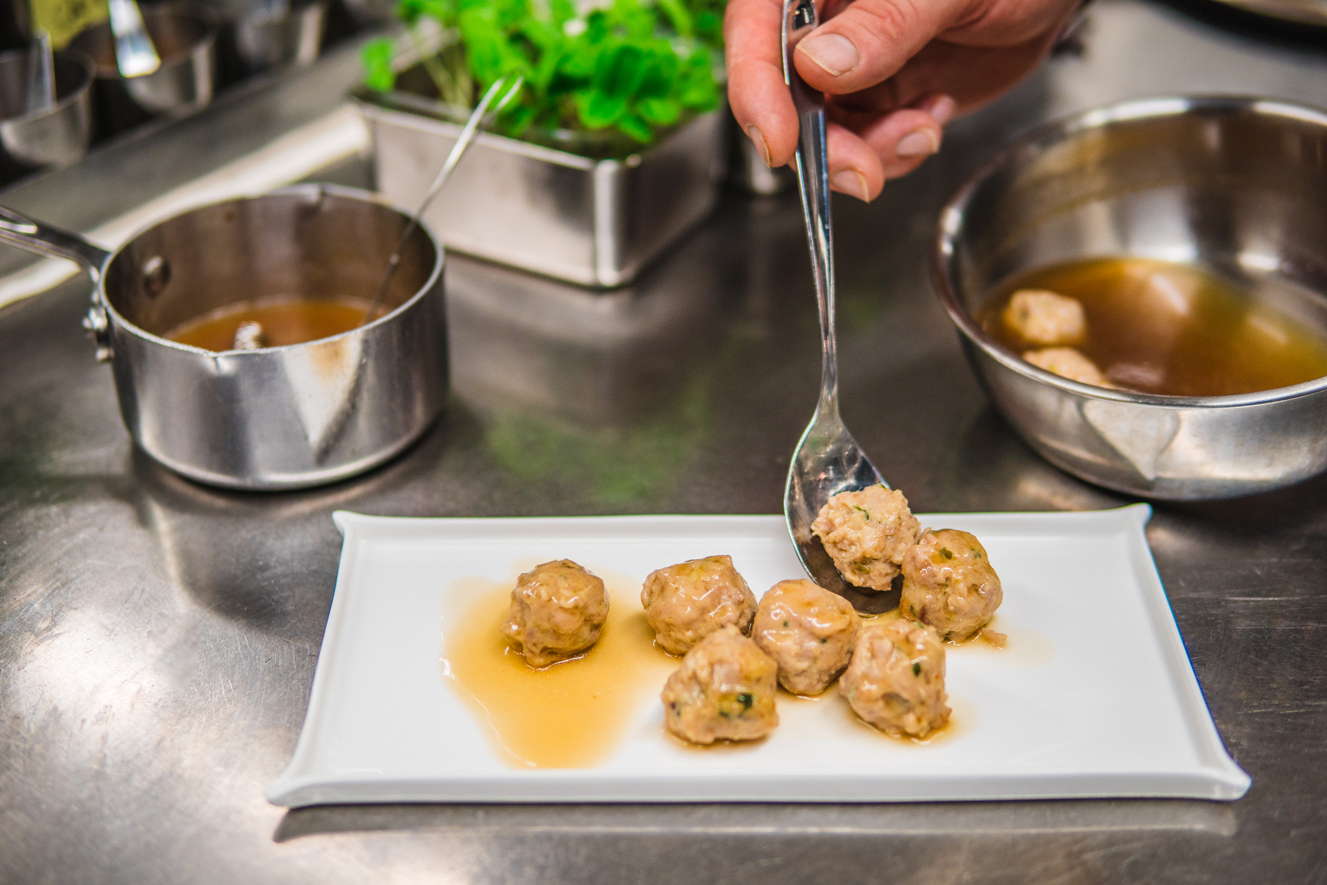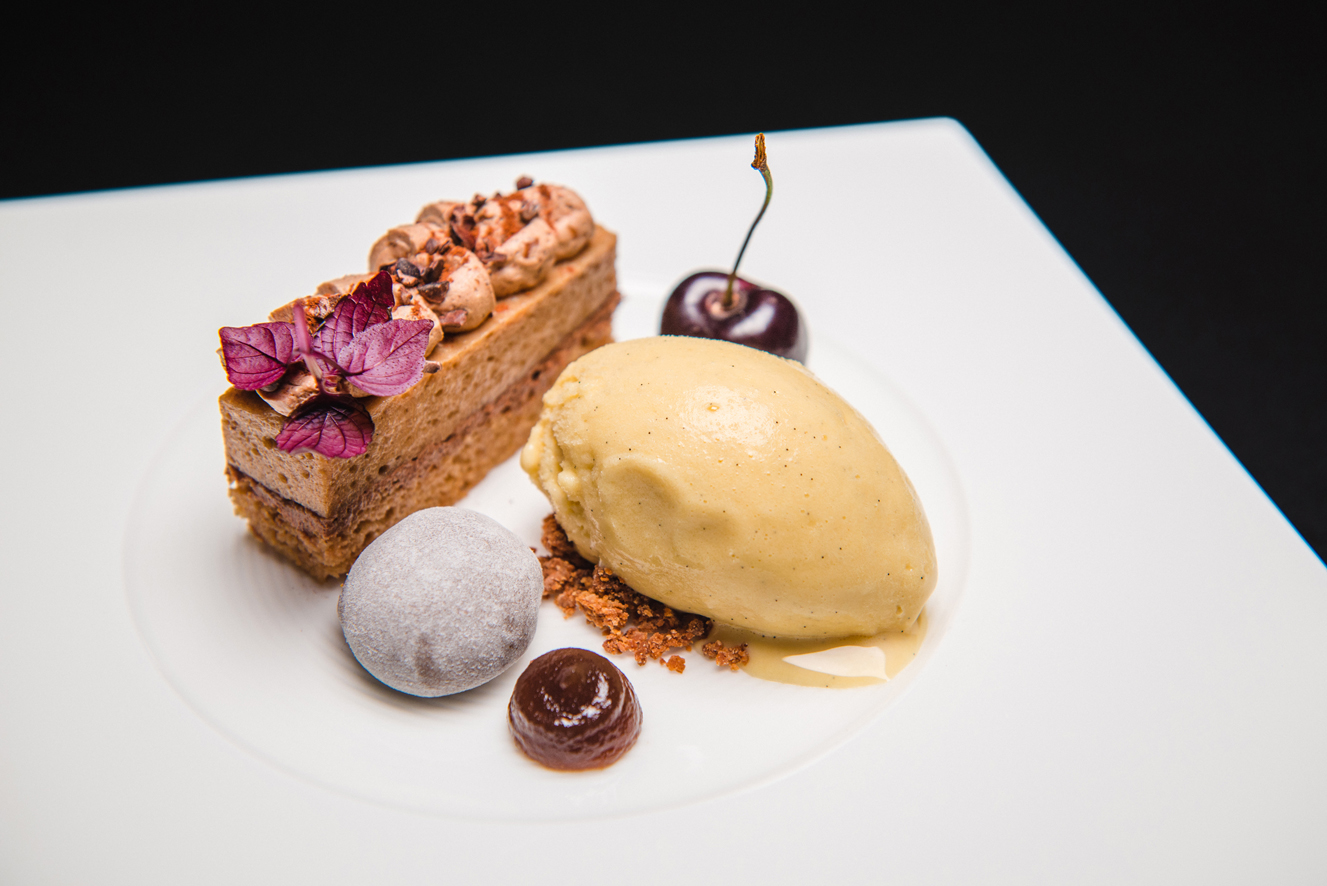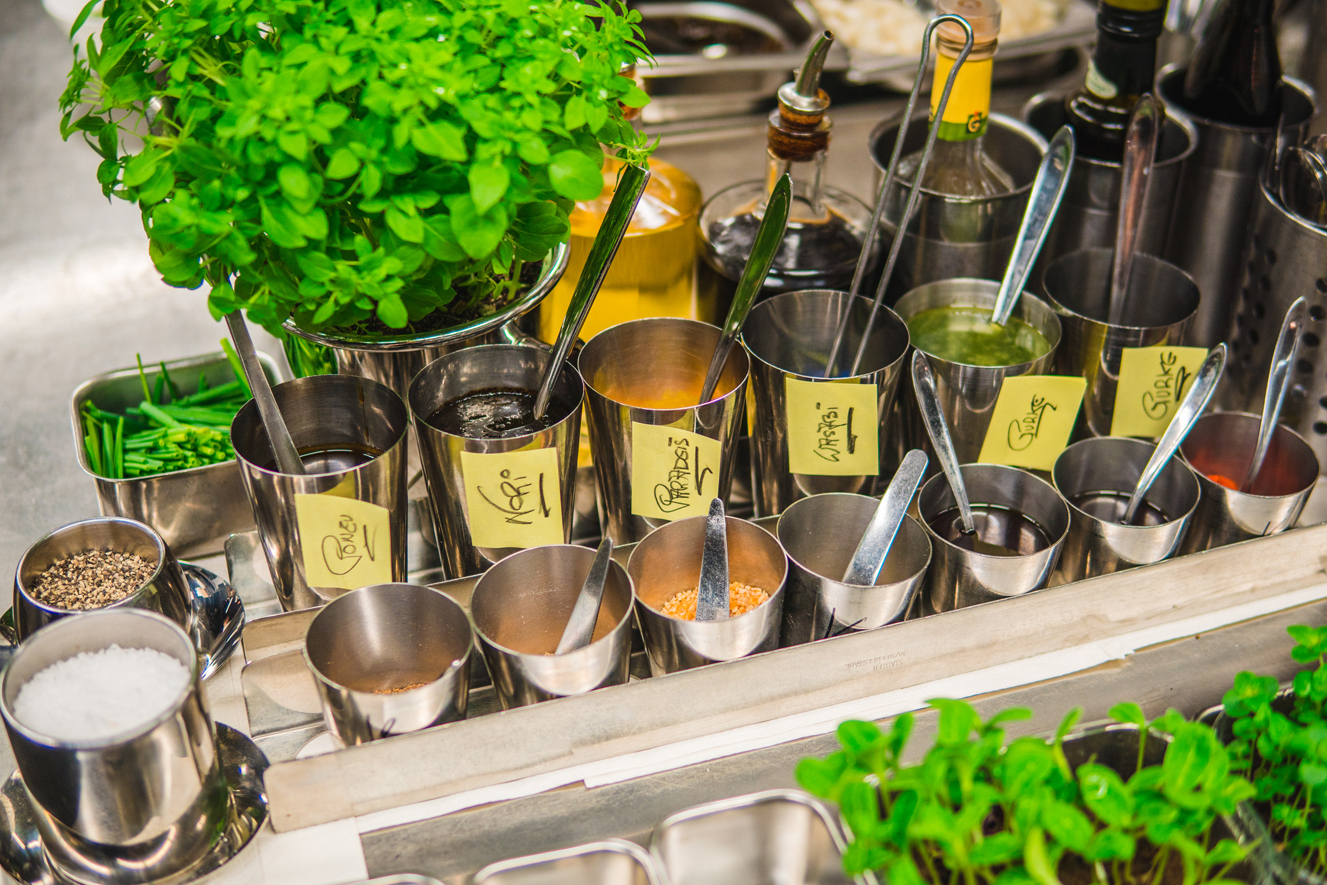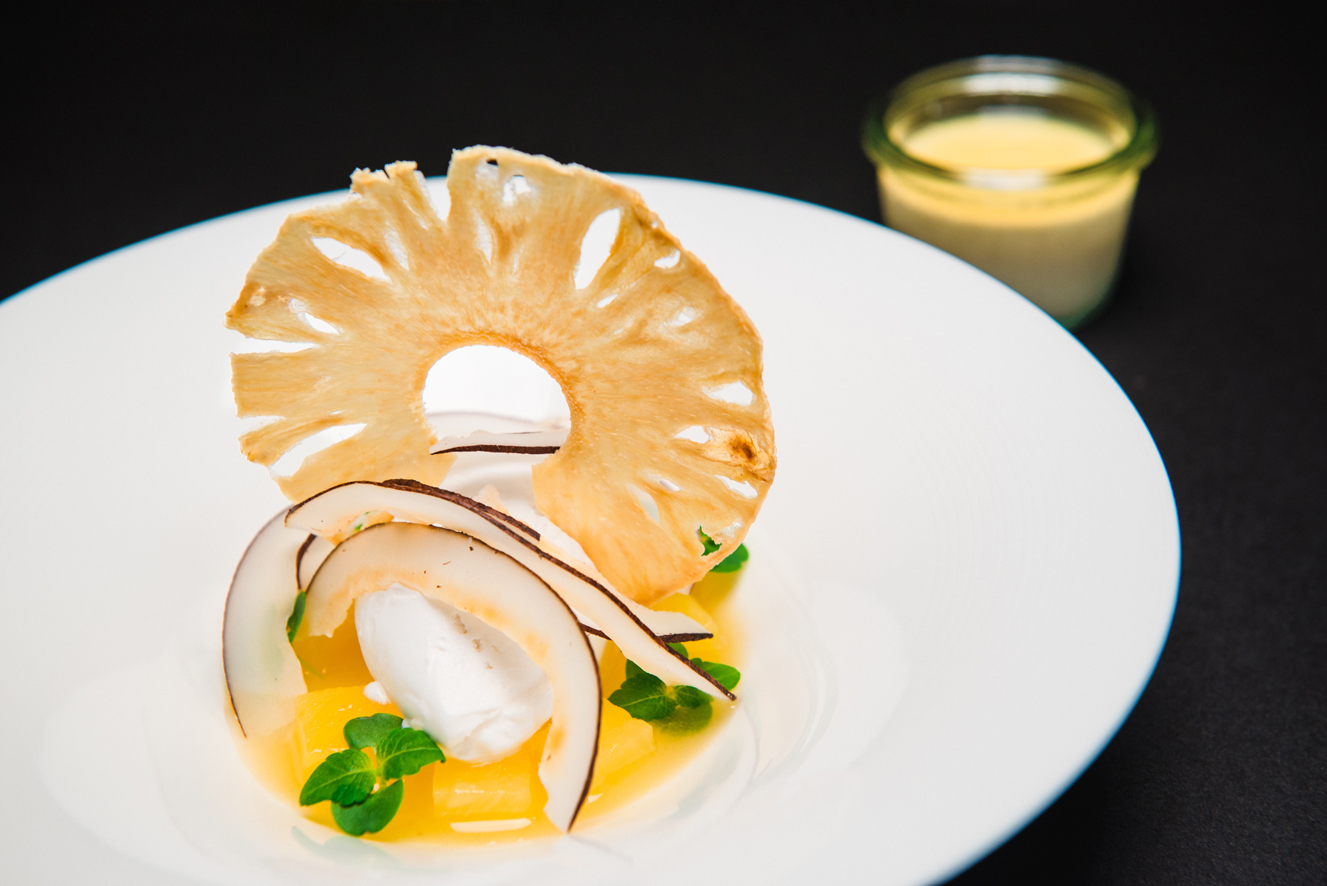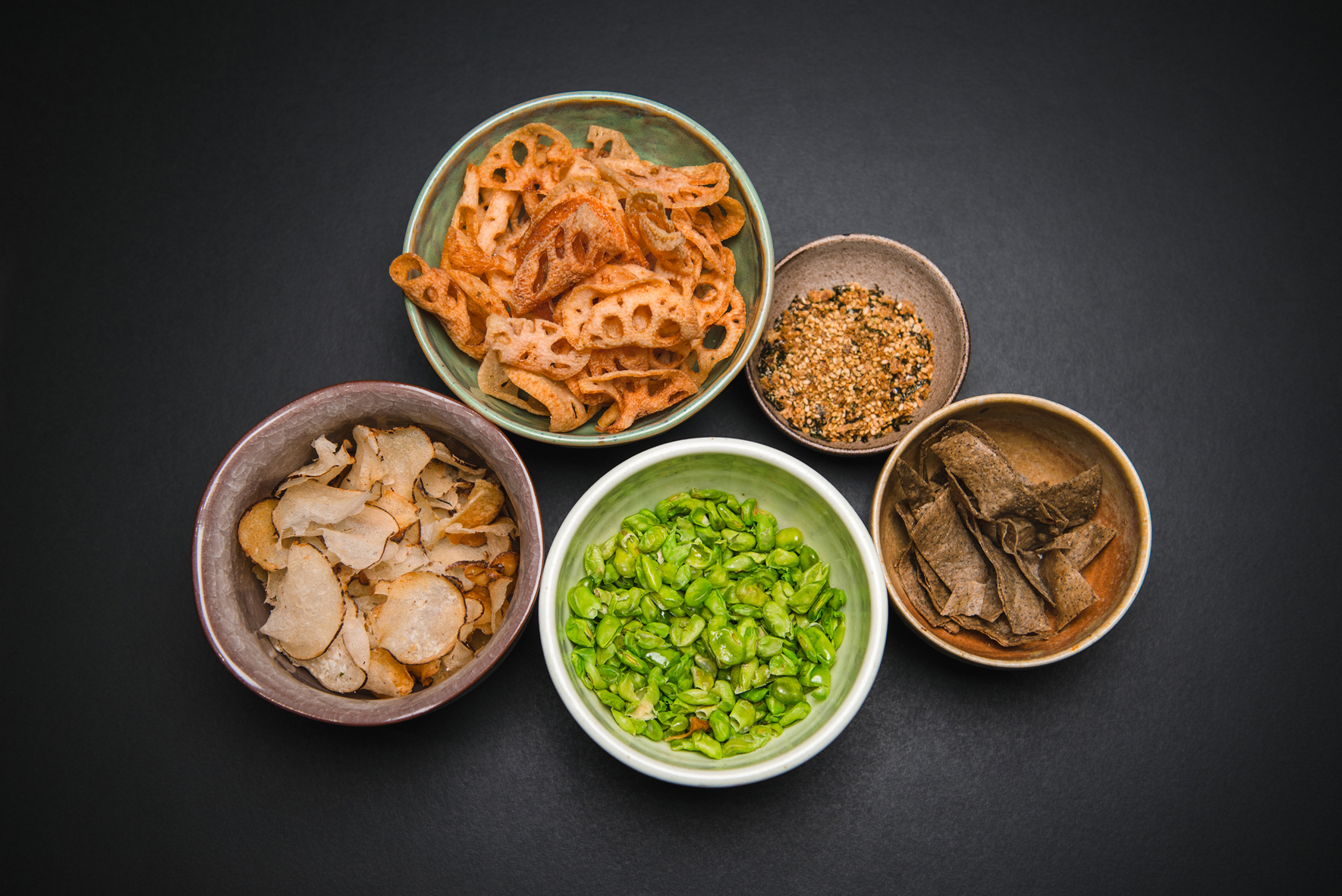All homemade
Stocks, pickled products, sauces or ramen – everything that leaves SHIKI’s kitchen is made from scratch in-house. This Michelin star crowned Vienna restaurant is one-of-a-kind when it comes to its wide range of homemade dishes. This includes the noodles for traditional ramen, pickled ginger or mochi (Japanese rice cakes that require a highly complex production process) – all of which are made from premium ingredients by hand.
One of Alois Traint’s extraordinary specialties: pickled seaweed. “Many cooks have a very wasteful approach to the use of seaweed. When they use the product to make a stock, they throw it into the garbage when done,” the Chef de Cuisine tells during a visit to his kitchen. The Japanese, on the other hand, understand eating as a meditative ceremony to be experienced with all of one’s senses. Hence, they have a sense of reverence towards all foods. At SHIKI, this concept and tradition are therefore observed in the same way as the restaurant follows the recipes and kitchen routines. Alois Traint explains that there are multiple uses for seaweed. First, the stock simmers at around 80°C for 40 minutes for the miso soup. After the stock has been passed through a sieve, the seaweed is julienned and served, for instance, as an added textural element in soups.
The scrumptious Tsukune – poached minced chicken thigh balls – are served with organic game hen or shrimp and egg in the restaurant’s ramen noodle soup and are among the many Japanese specialties that are freshly made in-house. Starting this fall, SHIKI will begin serving exclusively in-house made tofu in all dishes.
Chef Alois Traint and his team, staying true to the unaltered naturalness of fresh regional ingredients, also create thrilling desserts with Japanese restraint. Gourmets who love sweets even taste the subtle difference in the ever-so-delicate coconut & pineapple dish. The vegan ice cream made in-house from coconut milk, is served with homemade yoghurt, coconut cubes and pineapple chips.
While respecting the food is important, it is just as essential to use only the freshest of ingredients – ripe, alive, crisp, juicy. Spices are added not to modify the actual flavor of the ingredients, but to lovingly emphasize the taste. The fresher, the tastier. Hence, every warm water fish served at the SHIKI, such as char or trout, is sourced directly from controlled bodies of water just outside of Vienna. The poultry comes from organic farmers in the neighborhood.
At SHIKI, Joji Hattori is turning his vision of an authentic Japanese restaurant with Austrian influences into a real experience. In his eyes, fusion cuisine is not the absence of tradition, but inspiration by another.
